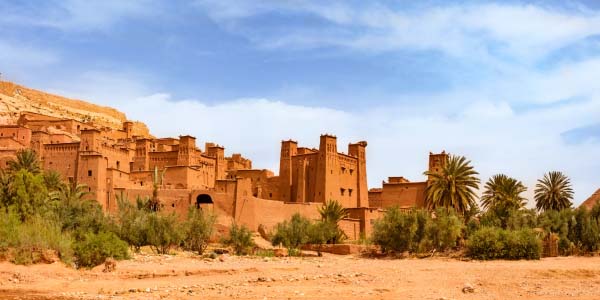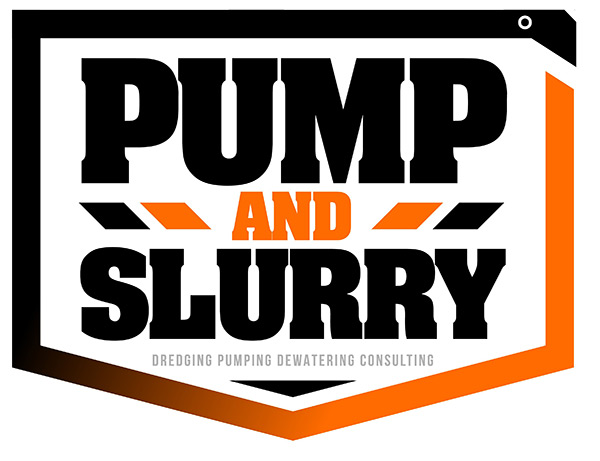Pumping and Dredging Project Consultation in Morocco | Pump and Slurry
Diverse sectors, including automotive parts, phosphate mining and processing, aerospace, food processing, leather goods, textiles, construction, and energy, characterize Morocco’s industrial landscape. In this dynamic environment, pumping, dredging, and dewatering services play crucial roles across various industries. For instance, in phosphate mining and processing, these services are vital for managing water inflow in open-pit mines and ensuring the efficient transportation of phosphate ore slurry. Additionally, pumping and dredging are essential for maintaining manufacturing facilities and ensuring the smooth operation of cooling systems and wastewater treatment processes in the automotive and aerospace industries. Moreover, efficient pumping and dewatering are necessary for maintaining hygiene standards and preserving product quality in food processing and textile manufacturing. In the construction sector, these services are indispensable for dewatering construction sites and controlling groundwater levels, particularly in coastal areas prone to flooding. Overall, pumping, dredging, and dewatering services support Morocco’s industrial activities, enhance operational efficiency, and promote sustainable development across critical sectors.

Pumping and Dredging Project Consultation in Morocco
Morocco’s slurry pumping and dredging projects are paramount for the nation’s industrial development, particularly in sectors like phosphate mining and processing. These projects are vital in facilitating the extraction and transportation of phosphate ore, which is crucial for Morocco’s economy. Slurry pumping enables the efficient movement of ore slurry from mining sites to processing plants while dredging assists in maintaining access to mining areas by clearing sediment and debris from water bodies. Moreover, in coastal regions where phosphate deposits are often found, dredging projects are essential for maintaining navigable waterways for transportation and exporting operations. Overall, pumping and dredging projects in Morocco are indispensable for sustaining the country’s phosphate industry, driving economic growth, and ensuring the continued supply of this valuable resource to global markets.
The sales and rentals of Morocco’s slurry pumps and dredging equipment are integral to supporting the nation’s industrial activities and infrastructure development. As demand for efficient pumping and dredging solutions continues to grow, particularly in sectors like mining, construction, and environmental management, the availability of high-quality equipment through sales and rental channels becomes increasingly crucial. These services provide businesses and project managers access to advanced technology and expertise, enabling them to optimize project efficiency, reduce downtime, and mitigate environmental impacts. Moreover, by offering flexible rental options, companies can adapt to fluctuating project requirements and scale their equipment fleet accordingly, enhancing productivity and competitiveness in the market. The sales and rentals of slurry pumps and dredging equipment also contribute to knowledge transfer and capacity building in Morocco’s industrial sector, fostering innovation and skills development for sustainable growth. These services are vital in supporting the execution of pumping and dredging projects in Morocco, driving economic growth and industrial innovation.
Our Services
Consulting Services
Pumping & Slurry Transport
Dredging Consulting
Dewatering
Equipment Sales & Rentals
Equipment Rental
Equipment for Sale
Customization Services
Industries in Morocco Requiring Slurry Pumping, Dredging, and Dewatering
Automotive Parts Industry
Efficient pumping, dredging, and dewatering are essential for Morocco’s automotive parts industry to support manufacturing processes and ensure operational efficiency. In this industry, pumping systems are utilized for coolant circulation, hydraulic fluid transfer, and wastewater management in machining and assembly operations. Dredging may be necessary in industrial wastewater treatment facilities to remove sediment and contaminants, ensuring compliance with environmental regulations. Additionally, dewatering is crucial in maintaining dry and stable work environments in automotive manufacturing plants, preventing equipment corrosion and ensuring product quality. Overall, efficient pumping, dredging, and dewatering services are vital for sustaining Morocco’s automotive parts industry and supporting its integration into global supply chains.
Phosphate Mining and Processing
Efficient pumping, dredging, and dewatering are indispensable for Morocco’s phosphate mining and processing industry, a cornerstone of the country’s economy. In this industry, slurry pumping is essential for transporting phosphate ore slurry from mining sites to processing plants, ensuring the efficient extraction of phosphate minerals. Dredging is critical in maintaining access to phosphate deposits by clearing sediment and debris from water bodies near mining operations. Moreover, dewatering is necessary for controlling groundwater levels in open-pit mines, preventing flooding, and ensuring the safety of workers and equipment. Overall, efficient pumping, dredging, and dewatering services are vital for sustaining Morocco’s phosphate industry and supporting its continued contribution to the global supply of fertilizers and agricultural products.
Aerospace Industry
Efficient pumping, dredging, and dewatering are crucial for Morocco’s aerospace industry to support manufacturing processes and ensure operational reliability. In this industry, pumping systems are utilized for coolant circulation, lubricant transfer, and hydraulic fluid management in machining and assembly operations for aircraft components. Dredging may be necessary for industrial wastewater treatment facilities to remove debris and contaminants, maintain water quality, and prevent equipment damage. Additionally, dewatering is critical in keeping dry and stable work environments in aerospace manufacturing plants, preventing corrosion and ensuring product quality. Overall, efficient pumping, dredging, and dewatering services are essential for sustaining Morocco’s aerospace industry and promoting its competitiveness in the global market.
Food Processing Industry
Efficient pumping, dredging, and dewatering are vital for Morocco’s food processing industry to support manufacturing processes and ensure food safety standards. In this industry, pumping systems transfer liquids such as water, ingredients, and food products between processing units, ensuring efficient production and distribution. Dredging may be necessary for wastewater treatment facilities to remove solid particles and contaminants, maintain water quality, and prevent environmental pollution. Additionally, dewatering is crucial in food processing plants to remove excess moisture from food products during cooking, drying, and packaging, ensuring product quality and shelf life. Overall, efficient pumping, dredging, and dewatering services are indispensable for sustaining Morocco’s food processing industry and ensuring the safety and quality of food products for consumers.
Our Presence in the Country
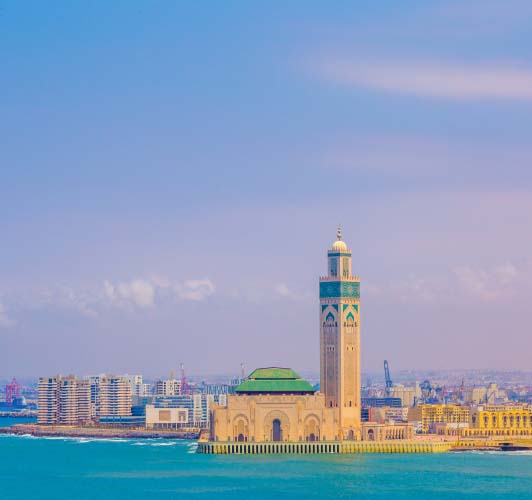
Casablanca
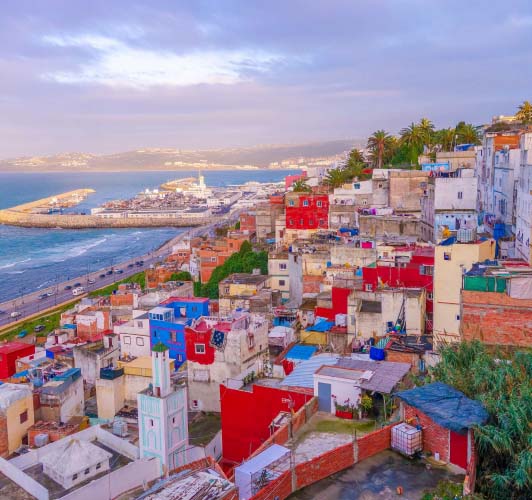
Tangier
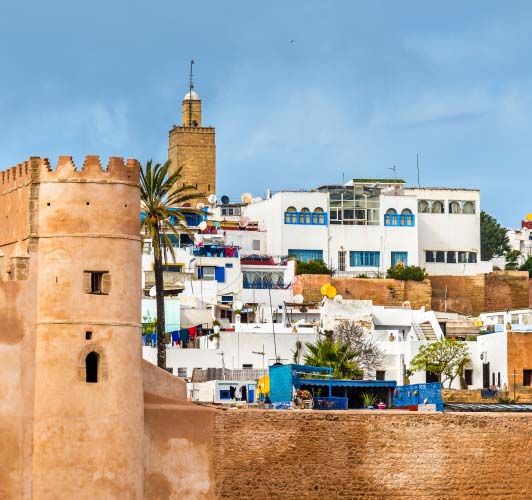
Rabat

Agropolis
Conclusion
the industries in Morocco, spanning automotive parts, phosphate mining, aerospace, and food processing, rely significantly on the indispensable services provided by pumping and dredging projects in the country. These projects support Morocco’s industrial landscape, ensuring efficiency, sustainability, and safety across various sectors. From facilitating mineral extraction to maintaining operational reliability in manufacturing plants, pumping and dredging projects are pivotal in driving economic growth and promoting environmental stewardship. As Morocco continues its industrial expansion and diversification, these projects will remain paramount, shaping its trajectory towards prosperity and development. With their essential contributions to resource management and infrastructure development, pumping and dredging projects in Morocco underscore their significance as catalysts for progress in the country’s industrial journey.
